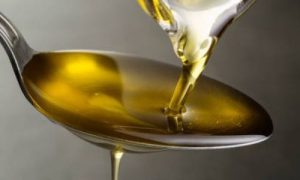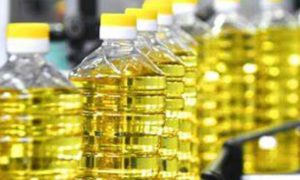Palm oil, coal account for over half of trade deficit with Asean

As India and the Asean formally embark on the review of their goods trade agreement, an analysis of merchandise traffic between the two shows that New Delhi has limited room to curb the rising trade deficit unless it undertakes a massive domestic investment programme to boost local production.
A big part of the deficit New Delhi is worried about is driven by industrial demand. About 50% of the imports from Asean are of coal, palm oil and other raw materials.
The trade deficit between India and Asean was $43.6 billion last year with imports of palm oil ($11 billion) and steam coal ($14.2 billion) accounting for over $25 billion. In FY23, India’s exports to Asean stood at $ 44 billion while imports were $87.6 billion.
The Asean India Trade in Goods Agreement (AIGTA) entered into force on 1 January 2010 which created one of the world’s largest free trade areas. Since then The trade deficit with Asean widened from $ 4.98 billion in 2010-11, the first full year of operation of AITGA to $43.57 billion in 2022-23.
“FTA review may not be helpful to cut such imports. Coal imports have increased by 121% in the past one year alone and most coal is steam coal, available in abundance in India. India should focus on using local coal,” according to the analysis by co-founder of Global Trade Research Initiative (GTRI) Ajay Srivastava.
Despite abundance of steam coal reserves the delays in land acquisition, clearances and issues in evacuation of coal from the mining sites has been a long-term issue requiring action on the ground.
India imports 61% of its edible oil requirements and for years efforts have been on decreasing this dependence on overseas sources but demand increase always outstips the supply. Biggest source of these two goods in Asean is Indonesia from which the total imports in FY 23 stood at $28.8 billion.
Asean has 10 members Brunei Darussalam, Cambodia, Indonesia, Lao PDR, Malaysia, Myanmar, Philippines, Singapore, Thailand, Viet Nam. Five countries Indonesia, Singapore, Malaysia, Thailand, Vietnam account for 92.7% of India’s exports and 97.4% imports.
Electronics imports from Asean stood at $10.4 billion in FY23 which includes computers and laptops ($2.4 billion), telecom and mobile phone parts ($2.2 billion) and Integrated circuits ($1.9 billion). Other items of imports from Asean were machinery ($7.1 billion), plastics ($3.8 billion), Iron and Steel ($3.3 billion), Crude oil and products ($2.7 billion) and copper concentrates ($1.1 billion).
Some of the electronics imports must be feeding the local manufacturing in India.
The analysis by GTRI also shows some round tripping of coal, iron, steel, or fertilizers from Singapore, which has no base in the manufacturing of these products.
“Such imports must be out of the FTA, but need investigation why they are happening in the first place. Rules of Origins may be checked for use of value addition norms for Electronics products and gold. India has a separate FTA with Singapore with more relaxed Rules of Origin (ROO). The two FTAs may be studied together,” Srivastava said. Imports from Singapore last year were $23.6 billion.
An official had told FE earlier that the main focus of the review of the review of AITGA would be rules and origin and market access issues being faced by Indian exporters.
“With Thailand India also has a standalone FTA called Early Harvest Scheme (EHS) with more relaxed Rules of Origin than what India-ASEAN FTA offers. Substantial imports may be happening through EHS. The two FTAs may be studied together,” the GTRI said.
Imports from Thailand were $ 11.2 billion. Malaysia with exports of $ 12.7 billion was another major supplier of palm oil, petroleum and electronics.
Vietnam, the other big exporter from Asean, sold $ 8.8 billion worth of goods to India including $3.6 billion worth of electronics and some mobile parts. Most electronics imports may be feeding as sub-assemblies, components for production under the PLI schemes.
“Current Rules of Origin with Minimum 35% value addition are sufficient to check pass through imports. They must be implemented meticulously,” the report said.















